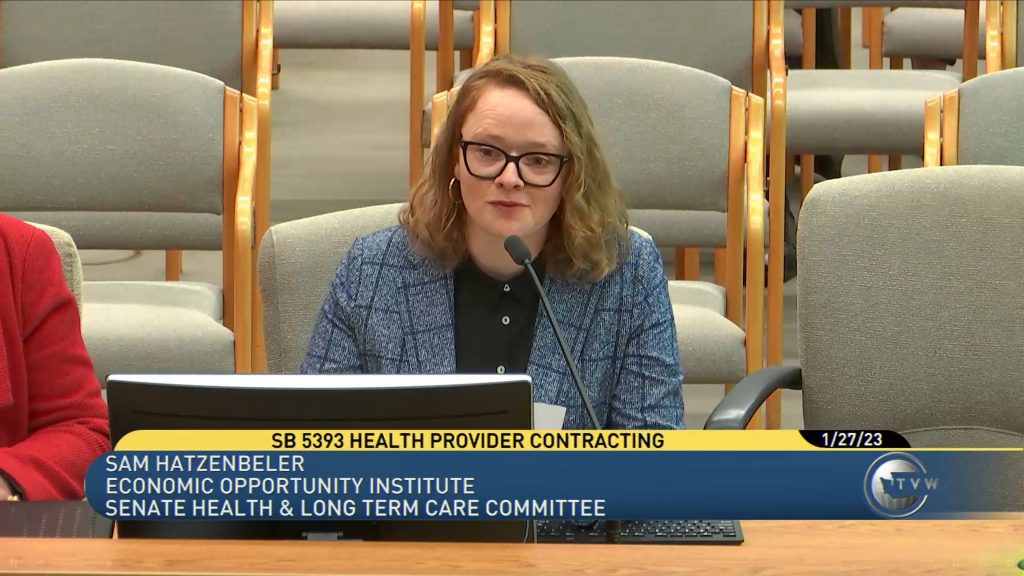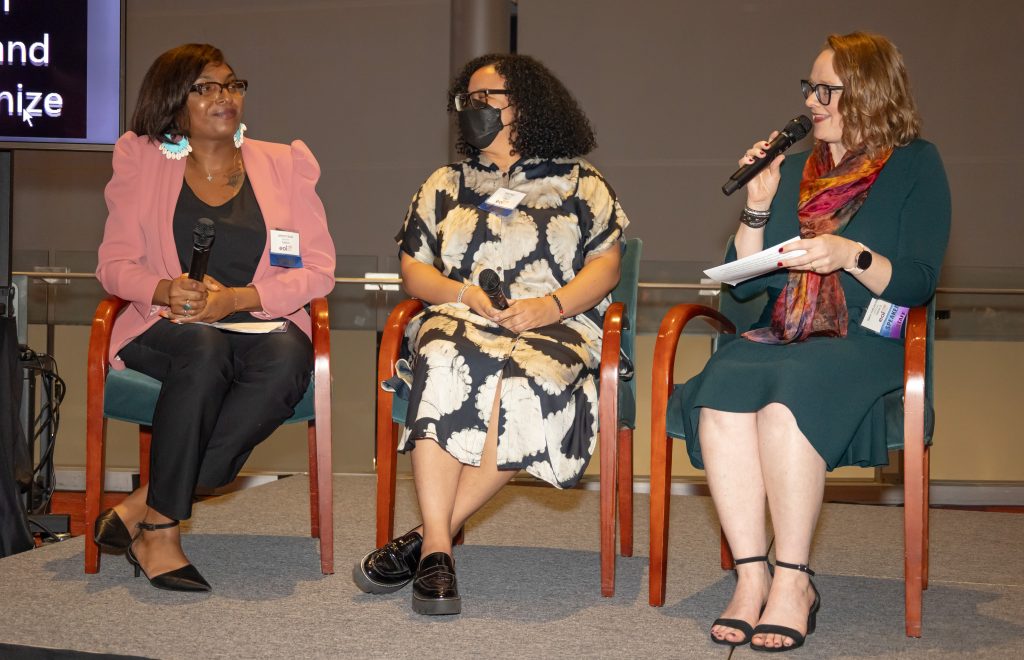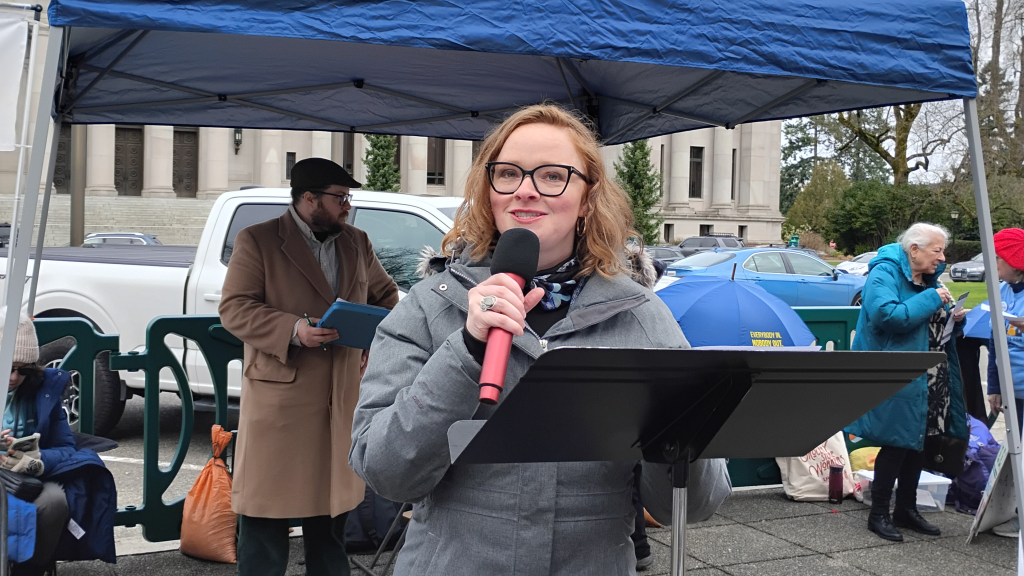Community-Oriented Public Health Practice MPH alum Sam Hatzenbeler describes her journey to health care policy and how she utilizes her public health background.

For Sam Hatzenbeler (COPHP ’15), an average day could include meeting with small business owners, crafting media messages about rising health care costs, or testifying in support of a new bill in Olympia.
As a Senior Policy Associate at the Economic Opportunity Institute (EOI), a Seattle-based non-profit, Hatzenbeler often utilizes her public health background.
“Public health people are generalists in the sense that we see the connections between societal problems and how they relate back to public health. When I first learned about EOI, I really appreciated that they were talking about paid family medical leave, women’s economic security, progressive revenue, and all of these things that are part of the building blocks for a secure economy and strong public health.”
After attaining her bachelor’s in Women’s Studies from UW in 2006 (she was honored with a “distinguished alum” award in 2023), Hatzenbeler began working in direct patient services, including at an abortion clinic and a domestic violence services organization. But she wanted to widen her impact.
“I decided I wanted to work more upstream to get at the deeper issues. We know direct services are so important and they save lives, but if we’re not working upstream, then we’re going to keep seeing problems,” she said.
She decided to go back to school to receive her MPH in the Community-Oriented Public Health Practice program.
“It was the perfect fit for me,” Hatzenbeler reflected. “I had already been working professionally for 10 years or so, and I was not looking for a program that was lecture-heavy and assigned reading-heavy. I wanted to really engage and build relationships and work on real-life public health problems.”
When EOI’s former policy director came in to speak to her class, Hatzenbeler instantly connected with the organization’s mission. She became a policy fellow at EOI in 2014, and has since held roles related to fundraising, policy development, and advocacy. Policy wins, such as securing paid family and medical leave for Washingtonians in 2017, sparked an interest in the “complex quagmire” of health care policy.
Tackling the Health Care Affordability Crisis
Subsequently, Hatzenbeler worked on the campaign to create a public option called Cascade Care, the very first program of its kind in the country. State agencies are now empowered to negotiate with health insurance companies on Cascade Care plans in an effort to lower costs for consumers.
“We see insurance rates go up year after year,” said Hatzenbeler. “Any tool to give patients the upper hand is important, because we are facing a health care affordability crisis.”
She has turned her passion for “tackling out-of-control health care costs” into Fair Health Prices Washington, a campaign that includes patient advocates, labor unions, and business owners. Recently, Hatzenbeler spearheaded a survey of Washingtonians, covered in The Seattle Times and elsewhere, that revealed widespread anxiety and insecurity around health care costs.
“57% of the people we surveyed said that they had either skipped going to the doctor or skipped their prescriptions because of cost in the last year, and a third of people say that they live in a household with medical debt. It’s just striking. So that is why I do what I do.”
– Sam Hatzenbeler



Hatzenbeler has shared her own story about the devastating impacts of the affordability crisis. In an article for The Spokesman Review, Hatzenbeler described how her elderly father was unable to afford 24-hour care, which she believes could have prevented a deadly fall.
EOI is one of the organizations opposing Initiative 2124, which seeks to fundamentally change the WA Cares program. Passed by the legislature in 2019 and implemented in 2023, WA Cares provides limited long-term care insurance for workers who contribute to the program via a payroll tax. If Washingtonians decide this November to make the payroll tax optional, WA Cares will likely cease to be financially viable.
For Hatzenbeler, her work ultimately stems from the belief that health care should be affordable and accessible for everyone.
“Going to the doctor for the care you need shouldn’t make you go bankrupt, and you shouldn’t have to choose between paying your rent or going to the doctor. Unfortunately, right now, that is the reality for a lot of people,” she said.